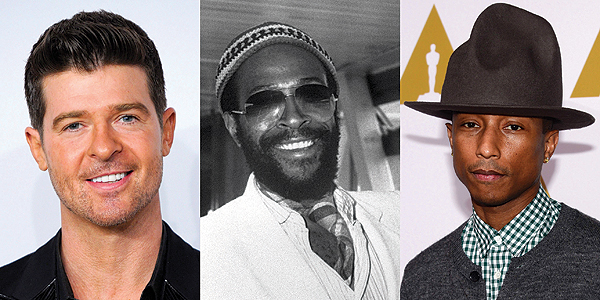
A long-running copyright dispute over the smash hit "Blurred Lines" has ended with the family of Motown legend Marvin Gaye winning a nearly $5 million judgment against Robin Thicke and Pharrell Williams. Thicke and Williams had been accused by Gaye's estate of copyright infringement for their 2013 hit because of similarities with the late singer's "Got to Give It Up." In 2015, the estate was awarded more than $7 million but the amount was later reduced to $5.3 million
Thicke and Pharrell appealed that judgment and a California judge earlier this year overall upheld the jury's decision. In a December 6 final ruling in the case made public on Thursday, US District Judge John Kronstadt ordered Thicke, Williams and Williams' publishing company to pay Gaye's estate $2.9 million in damages, US media reported. Thicke was ordered to pay an additional $1.76 million. Williams and his publishing company must also separately pay Gay's estate nearly $360,000.
Gaye's family was also rewarded 50 percent of the song's royalties. The verdict caps a long-drawn legal battle that was closely watched by the music industry. The initial award in the case had triggered an angry response from many songwriters, who argued that there were major differences between the two songs at the center of the legal battle, including the melodies and lyrics. Williams, a popular songwriter who had another smash hit with "Happy," said in an interview in 2015 that all creative people had inspirations.
"The verdict handicaps any creator out there who is making something that might be inspired by something else," he said at the time. "If we lose our freedom to be inspired, we're going to look up one day and the entertainment industry as we know it will be frozen in litigation." Representatives of both Williams and Thicke could not be immediately reached for comment.-AFP










